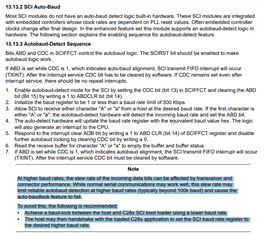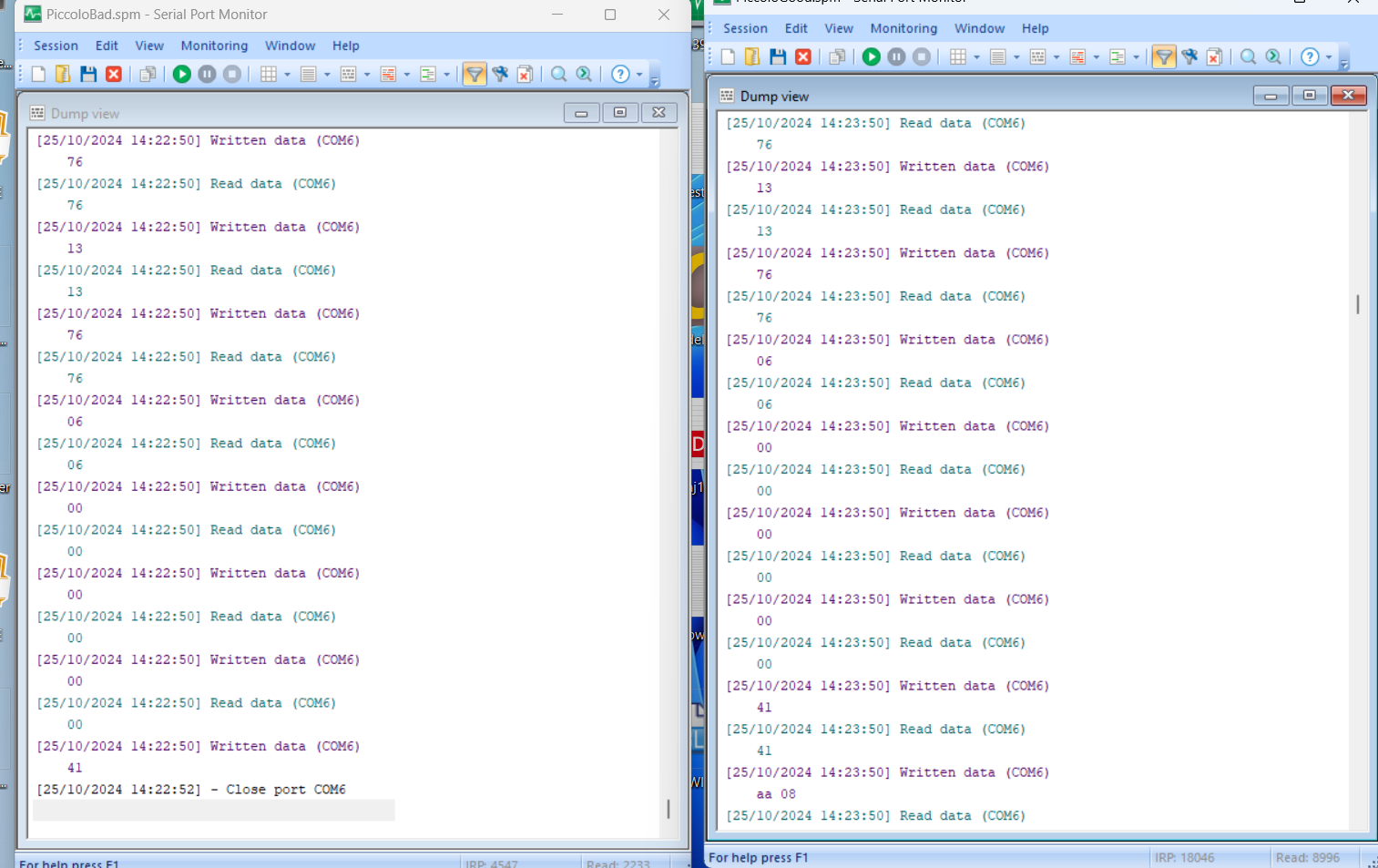Other Parts Discussed in Thread: C2000WARE
Tool/software:
Hi!
I have an established serial flash program that supports a number of TI processors (ie 2812,28069, Delfino Dual). I am looking into the baud rate for the download of the hex file to the 28069. What I am finding is that in order for the 28069 kernel to consistently download successfully, it requires a baud rate of 19200 or slower. If I try 38,400 or faster it sometimes will fail downloading. Now I am ok with a slower baud rate for the kernel as long as I can change the baud rate when the firmware subsequently downloads. After the kernel downloads there is an autobaud that is performed, but what I am finding, is that if I attempt to increase the baud rate for the firmware, the autobaud fails (no response from the drive). If the baud rate stays at 19200, autobaud is successful and the firmware downloads just fine.
I would appreciate your thoughts on this. Is it reasonable for me to increase the baud rate between the kernel and the firmware downloads and is it correct that the kernel requires a slower baud rate as I have tested.
Thank you in advance!
Sandy



